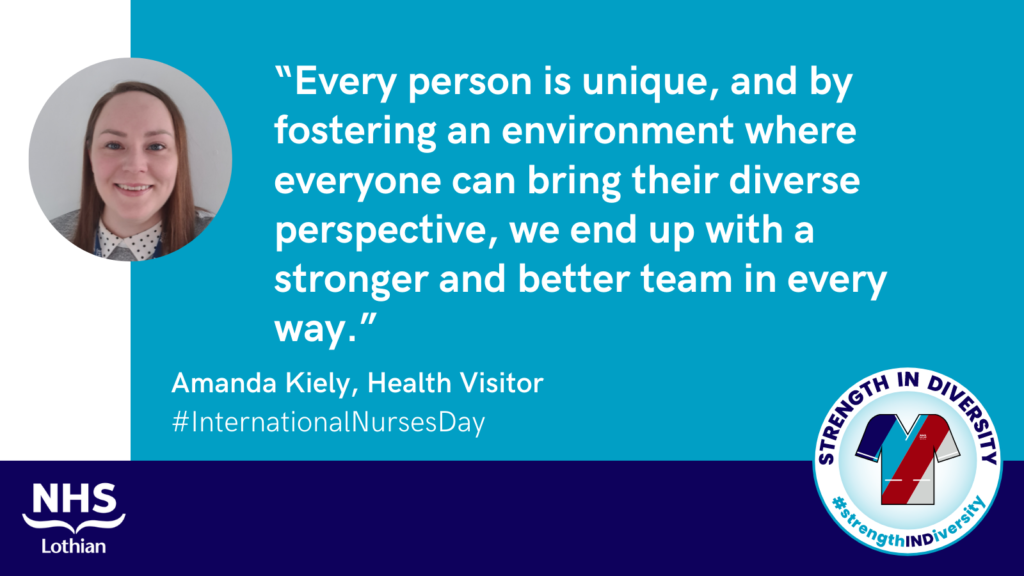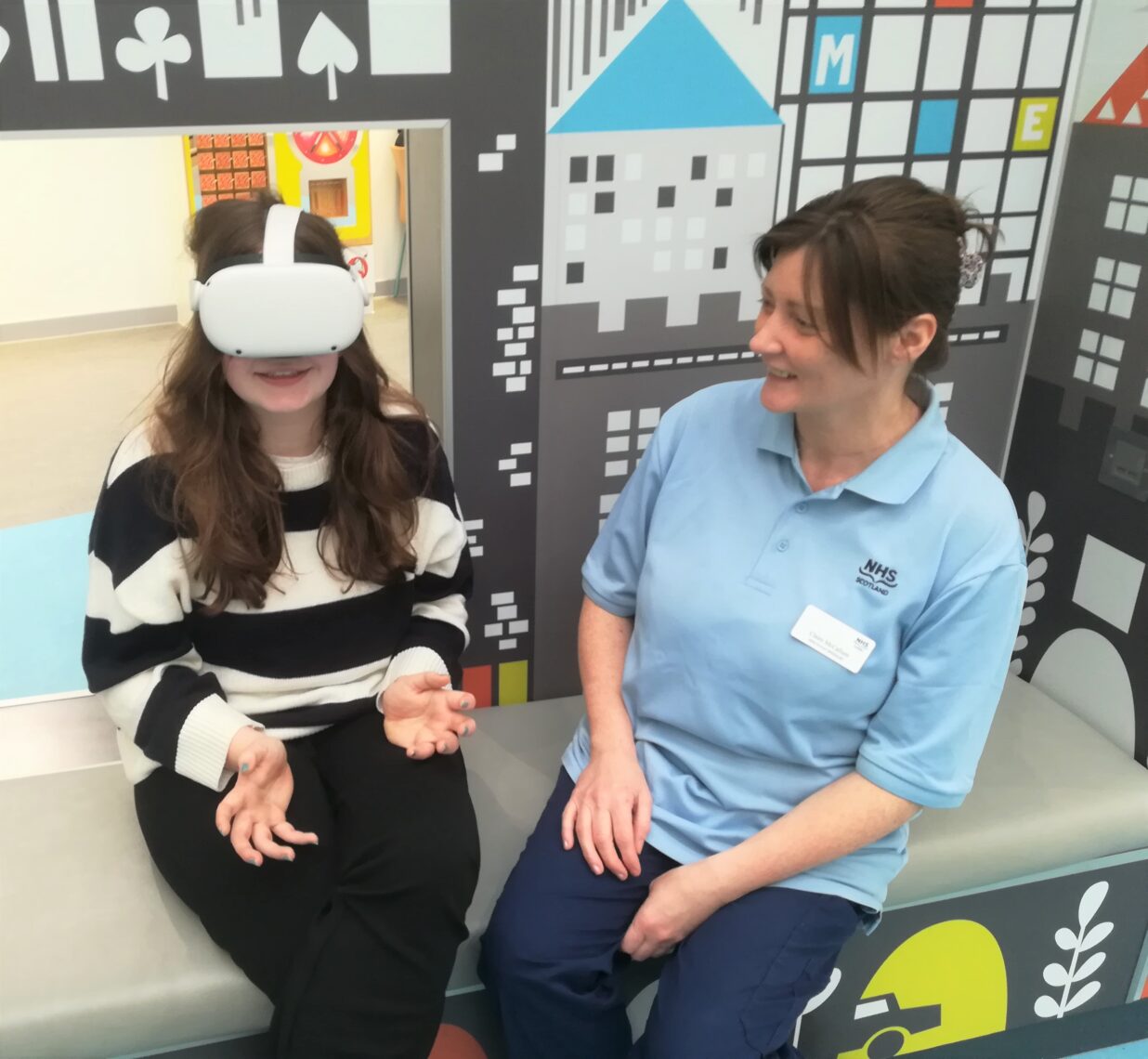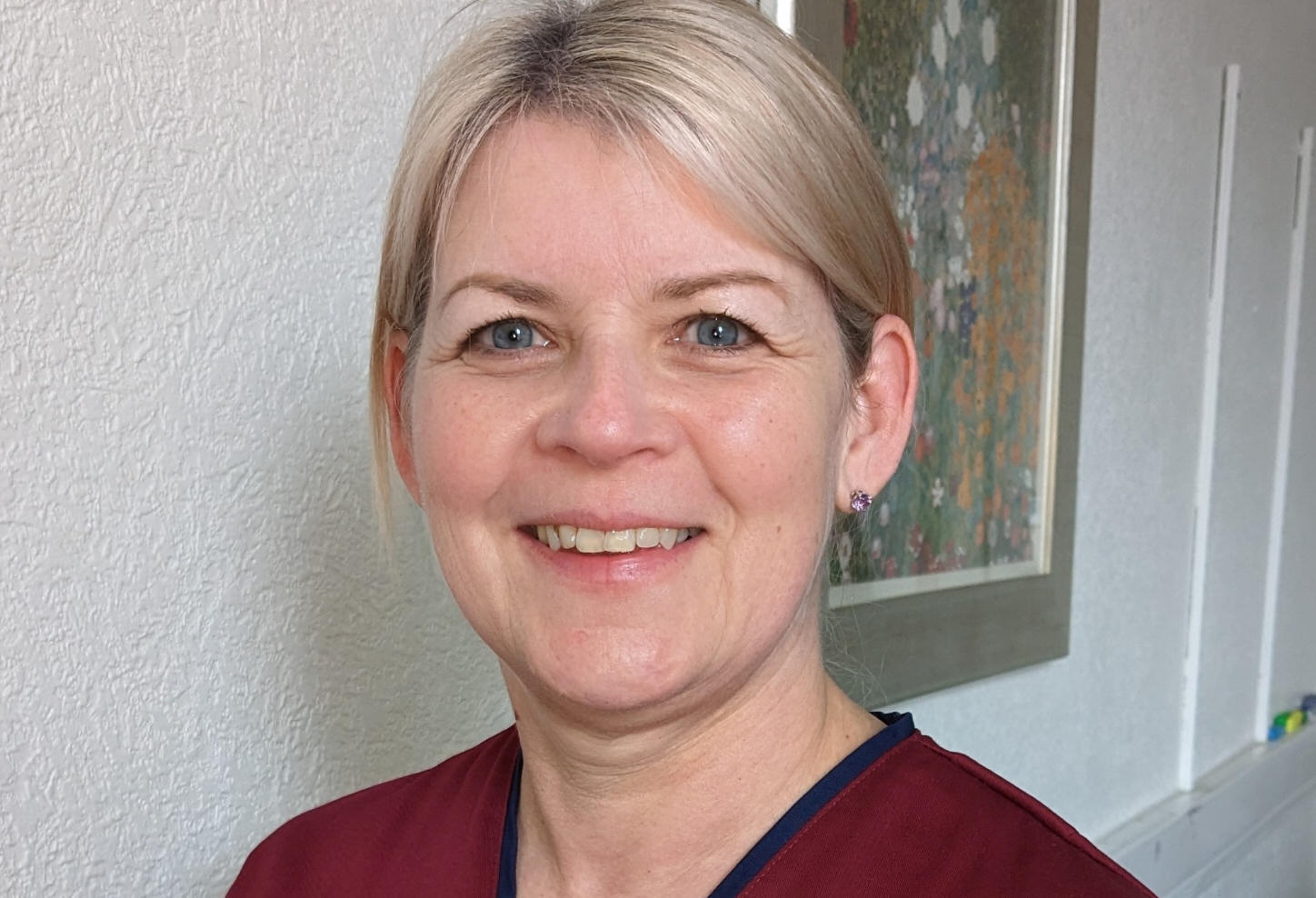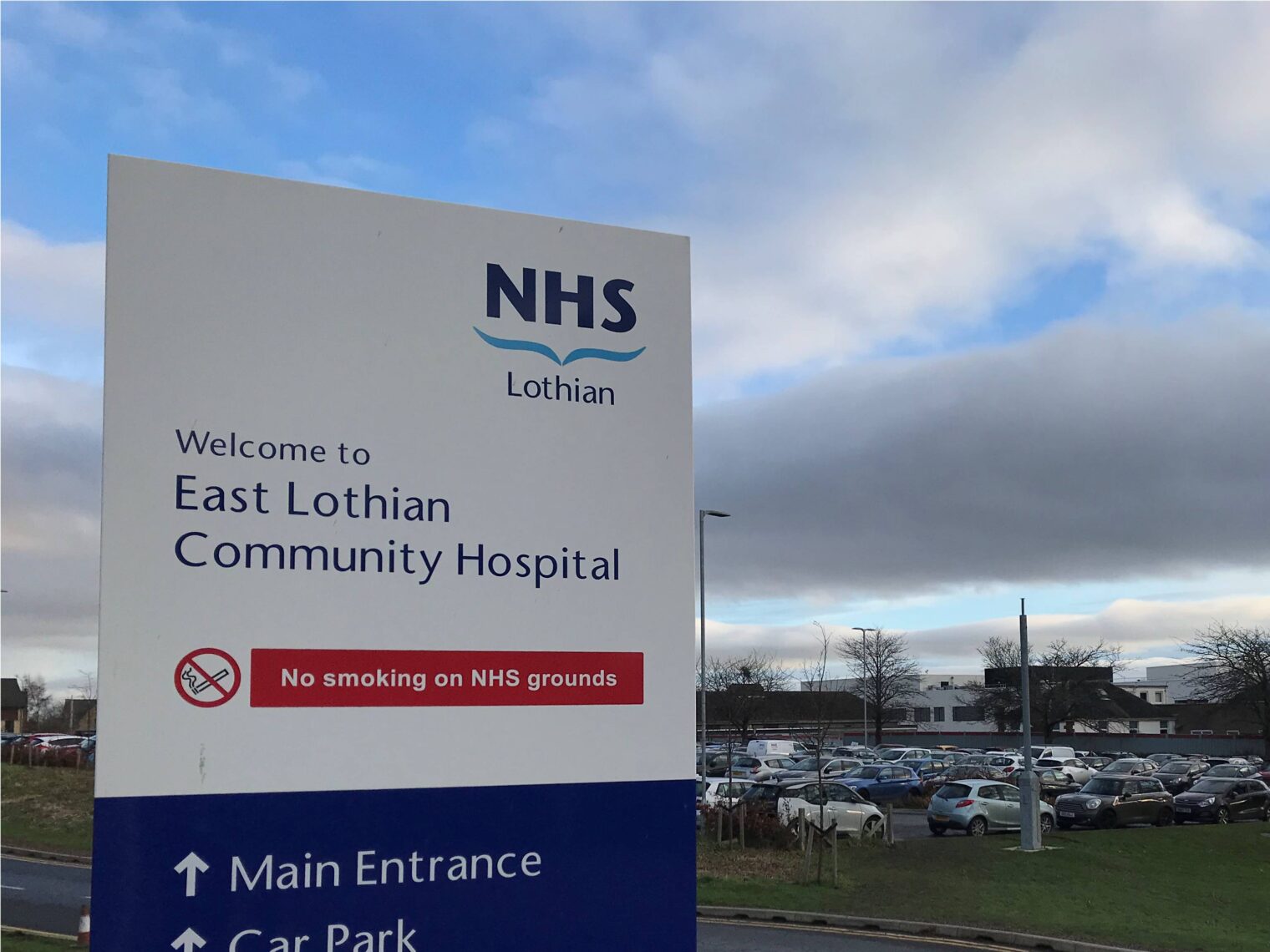Amanda Kiely is a Health Visitor in West Lothian who works with children under the age of five and their families. As part of our StrengthINDiversity series, Amanda spoke about her role as a health visitor, what that looks like and how her unique perspective makes the care we provide more holistic.
Her day-to-day varies depending on her home visits. Every child gets visits at specific times during their upbringing, and some families are visited more often if they need more support.
That support can include any issues or conditions, and Amanda has personally experienced poor mental health after the birth of a child, which is an experience she draws from when supporting her clients.
“After my first child, I suffered from postnatal depression, and I’m happy to openly talk to both clients and colleagues about this,” she says. “I feel like that has given me a unique insight into how to approach and discuss mental health with clients. I’m also better equipped to support them if they can’t or aren’t willing to recognise that they are suffering from postnatal depression.
“I can’t thank my colleagues enough for supporting me through that time, and it’s made us stronger as a team, because now I can help them manage those situations with the people they’re supporting. Every person is unique, and by fostering an environment where everyone can bring their diverse perspective, we end up with a stronger and better team in every way.”
Amanda also risk assesses every family she works with for domestic abuse. “I routinely ask mothers about domestic abuse,” Amanda says. “But because of COVID-19, a lot of partners are now working from home. There is increased risk when asking a mother about domestic abuse in the home, and I would never put someone at risk in that way, so I look out for other opportunities if needed.”
The questions may come as a surprise for some, but for Amanda it’s important for new mums to know that help is available if they are experiencing abuse from a partner.
“Recently, there was potential domestic abuse suspected in a home. I was able to take a walk with the mother and baby while the partner stayed at home, and I could ask about it then without any risk of the partner overhearing.”
If a parent discloses domestic abuse, Amanda helps make sure they and the child are safe. That includes safety planning, advice and support to contact the policeor seek help from other support services.
“If you have a friend or relative that you’re concerned for, there are signs they might be in an abusive situation,” Amanda says. “For example, if the potential victim is being isolated from friends and family. If they are in an abusive situation, the abuser may be controlling their access to basic essentials such as money, transport, food or internet access. If your friend or relative suddenly can’t do things that they used to be able to, or should be able to, have a conversation with them in a safe space. Let them know you are available and ready to support them through the next steps, whatever that may be.”
If you or someone you know are going through domestic abuse, there are resources available: Women’s Aid, the Domestic and Sexual Assault Team in West Lothian, and the National Domestic Violence Hotline. There is also the Disclosure Scheme for Domestic Abuse Scotland, where concerned relatives and friends have the right to ask if a person’s partner has been abusive in the past.






















